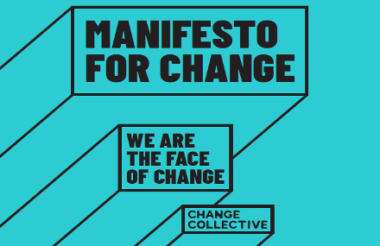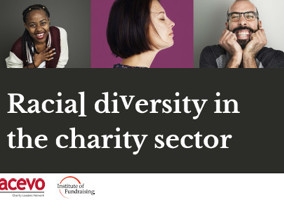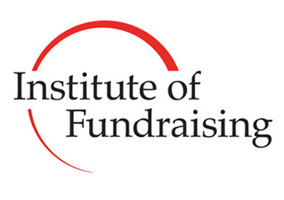The Institute of Fundraising has launched its Change Collective diversity initiative with a Manifesto for Change, and called on the fundraising sector "to work together" to make the profession more inclusive.
At an event in London yesterday evening, the IoF invited a number of speakers to help launch its Change Collective initiative; including Sufina Ahmad, chair of its expert advisory panel on equality, diversity and inclusion and Paul Amadi, a former chair of the Institute.
The IoF describes the Change Collective as “a movement calling for fundraisers, and their allies, to work together to make fundraising a more equal, diverse and inclusive profession, where everyone is the right fit”.
The seven-page Manifesto for Change sets out “some guiding objectives and activities needed for fundraising professionals to work together to redefine the sector’s identity, starting the conversations and programmes that end the challenges holding minorities back”.
The document represents nine months of work undertaken by the IoF’s EDI Panel, which first met in early February of this year.
Speaking to Civil Society News ahead of the launch, Peter Lewis, chief executive of the IoF, said the manifesto was a “step on the way to a formal strategy” which would be unveiled at the IoF Convention in 2019.
“This is a manifesto and what the panel are now charged with is developing other strategy. This is a step on the way to a formal strategy. That’s their next challenge, which should be done by Convention 2019”.
As a next step, the IoF have also today published an online EDI survey, calling on members to respond in order “to set a comprehensive benchmark of the diversity of the profession, and inform the development of its ten year EDI strategy”.
IoF must be ‘held to account’ for success of initiative
Paul Amadi, chief supporter officer at the British Red Cross and an EDI panel member, said he felt “delight, pride and a sense of real anticipation” in the future success of the initiative.
He said that "having worked in fundraising for longer than I care to remember or admit" the launch of the manifesto "does feel like a moment".
However, Amadi also said he felt a "sense of fear" that the sector might feel "that we've done it now" on diversity, and called on the IoF's members, the sector as a whole, and the press, to hold the Institute to account for embedding the manifesto into everything it does.
“There is very much a sense of fear. My fear comes from a feeling that because this manifesto has been published we become, complacent is the wrong word, but that we feel because we’ve mapped out a future direction, because we really care about the things that we want to achieve, I have a sense of worry that we feel that we’ve done that now.
“This manifesto really needs to be embedded and it’s absolutely imperative that the Institute works hard to do that. The sector and the press needs to hold it to account to make sure that happens.”
Amadi also said that the fundraising sector had “lost so much talent up to now” through a lack of inclusivity and said that the time to act was now.
Sector faces ‘really long journey’
Sufina Ahmad also warned that the fundraising sector faces a “really long journey” to becoming more inclusive and representative of wider society.
Ahmad, corporate strategy manager at City of London Corporation, said she was “very proud” of the work that her and the panel have done on the manifesto, but called it the first step and admitted the IoF would make “mistakes along the way”.
“The Institute of Fundraising must be a thought leader, it has to be an enabler, a catalyst for change. There needs to be confidence to discuss challenging issues. There needs to be leadership around this, particularly for the fundraising sector, but we also hope this has a ripple effect for other sectors.”
Ahmad also said that the IoF “can’t do this alone” and called on the Institute’s members to “come with us on this journey”.
“We need to be a bit patient, because it all feels like it needs to be done first and it all needs to have been done years ago,” said Ahmad. “But the sector needs to stay motivated because we will take a few wrong turns along the way”.
|
Related Articles












